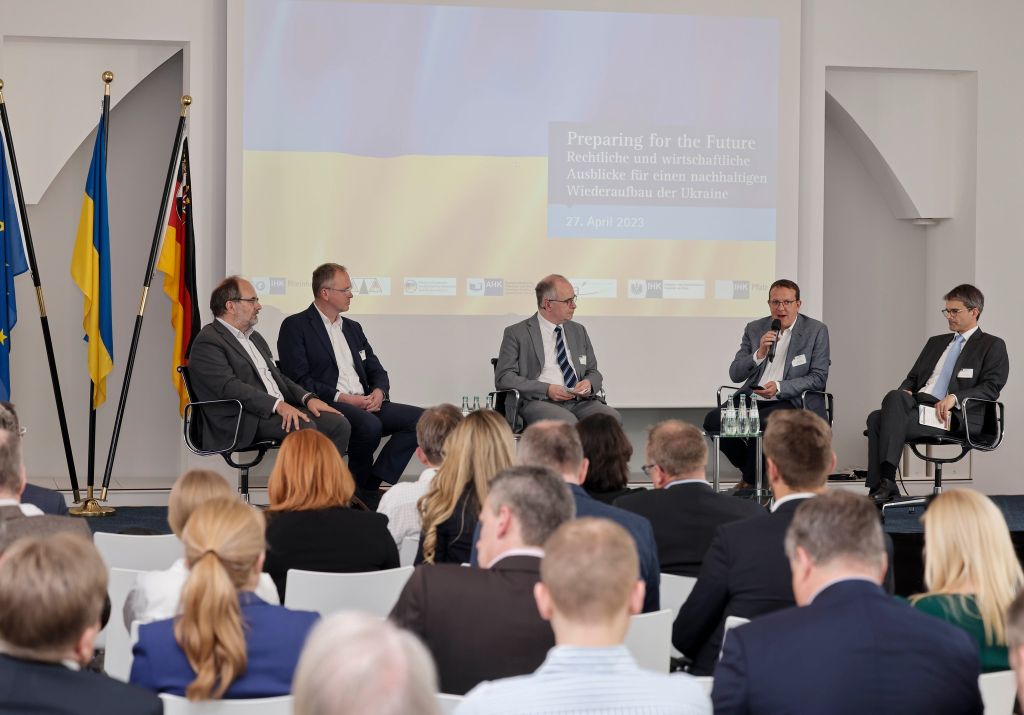
Joint Statement of the United States of America and Republic of Korea on Cooperation in Quantum Information Science and Technologies
The following joint statement was released by the Governments of the United States and Republic of Korea on the occasion of a meeting between Dr. Arati Prabhakar, Director of the White House Office of Science and Technology Policy and Chief Science Advisor to President Biden and Dr. Lee Jong-ho, Minister for Science and Information and Communication Technologies for the Republic of Korea.
Begin Text:
The United States of America and the Republic of Korea, building upon their shared values and strong alliance, intend to pursue cooperation in quantum information science and technology (QIST) for the peace and prosperity of the citizens of both countries.
We understand that science and technology are key drivers of innovation in society and the economy, and that collaborative and transnational efforts in research and development are important to accelerating innovation.
We recognize that QIST is a critical and emerging technology, which enables the development of powerful computers, more secure communications networks, and more precise and accurate sensors, by exploring new ways to acquire, transmit, and process information using quantum mechanics.
We assert that the emergence of such technologies provides opportunities to enable wider scientific endeavors and to develop new applications for using QIST to explore grand societal challenges, potentially including global health, climate change, and efficient resource use.
We affirm that a skilled workforce and an increased awareness of applications are essential for the progress of QIST and the development of quantum-enabled economies, and that diverse efforts are required to encourage broad and inclusive participation in QIST, including public awareness campaigns, educational initiatives, apprenticeships, quantum and interdisciplinary skill building, and reskilling programs.
We acknowledge that the QIST ecosystem, consisting of stakeholders from various areas, including academia, government, and the private sector, is global and interconnected. The exchange and integration of ideas, expertise, and creativity is critical for expanding basic understanding and accelerating the deployment of QIST.
Building on the Agreement Relating to Scientific and Technical Cooperation between the Government of the United States of America and the Government of the Republic of Korea signed at Washington on July 2, 1999, as extended (the “S&T Agreement”), we intend to advance our shared vision of QIST as follows:
We intend to embark on good-faith cooperation underpinned by our shared values including freedom of inquiry, fair competition, openness and transparency, accountability and reciprocity, protection and enforcement of intellectual property, rigor and integrity in research, research security, and democratic values.
We commit to create inclusive scientific research communities and tackle cross-cutting issues of common interest such as equity, diversity, inclusion, and accessibility, so that every person may fully participate and have an equal opportunity to succeed.
We strive to facilitate interactions between government, academia, and the private sector to understand research trajectories in QIST. In turn, these interactions can lead to the identification of overlapping interests and opportunities for future scientific cooperation to accelerate the societal benefits of this nascent field and remain responsive to its as-yet-unknown implications.
We intend to enable opportunities to build a trusted global market and supply chain for QIST research and development (R&D), and support economic growth, by engaging the private sector and industry consortia.
We plan to leverage regular bilateral and multilateral opportunities to discuss QIST matters, including standardization, and technology protection considerations, where international collaboration is key.
We intend to promote joint research in QIST, including personnel exchanges and the sharing of QIST-related methodologies and data on voluntary and mutually agreed terms, to develop the next generation of scientists and engineers vital to expand the field. Cooperation pursuant to this Joint Statement is subject to the terms of the S&T Agreement.
The United States of America and the Republic of Korea look forward to deepened bonds of friendship and understanding between our two countries, and to mutual contributions for the enhancement of QIST, based on increased cooperation in the field.
End Text.
For more information, please read the National Quantum Initiative release.
Official news published at https://www.state.gov/joint-statement-of-the-united-states-of-america-and-republic-of-korea-on-cooperation-in-quantum-information-science-and-technologies/
Politics - JISIP NEWS originally published at Politics - JISIP NEWS



 Representatives from the U.S. Department of State, including Jennifer Bachus, Principal Deputy Assistant Secretary of the Bureau of Cyberspace and Digital Policy; and Allison Peters, Deputy Assistant Secretary of the Bureau of Democracy, Human Rights, and Labor; as well as Jaisha Wray, Assistant Administrator for the Department of Commerce’s National Telecommunications and Information Administration, will […]
Representatives from the U.S. Department of State, including Jennifer Bachus, Principal Deputy Assistant Secretary of the Bureau of Cyberspace and Digital Policy; and Allison Peters, Deputy Assistant Secretary of the Bureau of Democracy, Human Rights, and Labor; as well as Jaisha Wray, Assistant Administrator for the Department of Commerce’s National Telecommunications and Information Administration, will […] SECRETARY BLINKEN: Thank you. Good morning, everyone. SECRETARY BLINKEN: Okay, so here’s a professional tip. Never follow Sara Minkara. (Laughter.) It’s a little bit like getting on stage after Taylor Swift. (Laughter.) Sara, it’s not just that I’m proud of you; it’s that I’m grateful for you, and for your entire team. The work that […]
SECRETARY BLINKEN: Thank you. Good morning, everyone. SECRETARY BLINKEN: Okay, so here’s a professional tip. Never follow Sara Minkara. (Laughter.) It’s a little bit like getting on stage after Taylor Swift. (Laughter.) Sara, it’s not just that I’m proud of you; it’s that I’m grateful for you, and for your entire team. The work that […] There is a lot of pro-Putin bias in the Western world. We aim to dispel this “macho” propaganda and reveal true colors of his regime: murder, intimidation, industrialized kleptocracy and well-funded russian fascism propaganda machines. We were born in Russia, we have lost friends to this murderer… we see how he “zombifies” most and intimidates […]
There is a lot of pro-Putin bias in the Western world. We aim to dispel this “macho” propaganda and reveal true colors of his regime: murder, intimidation, industrialized kleptocracy and well-funded russian fascism propaganda machines. We were born in Russia, we have lost friends to this murderer… we see how he “zombifies” most and intimidates […] The United States offers our deepest congratulations to Maia Sandu on her reelection as President of Moldova. President Sandu is the first Moldovan president to win a mandate for a second term by popular vote, a historic achievement. We commend the people of Moldova for their commitment to a democracy that reflects the will of […]
The United States offers our deepest congratulations to Maia Sandu on her reelection as President of Moldova. President Sandu is the first Moldovan president to win a mandate for a second term by popular vote, a historic achievement. We commend the people of Moldova for their commitment to a democracy that reflects the will of […]